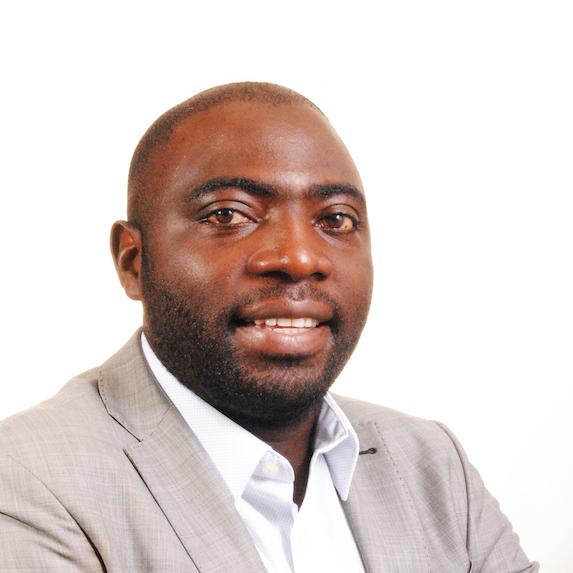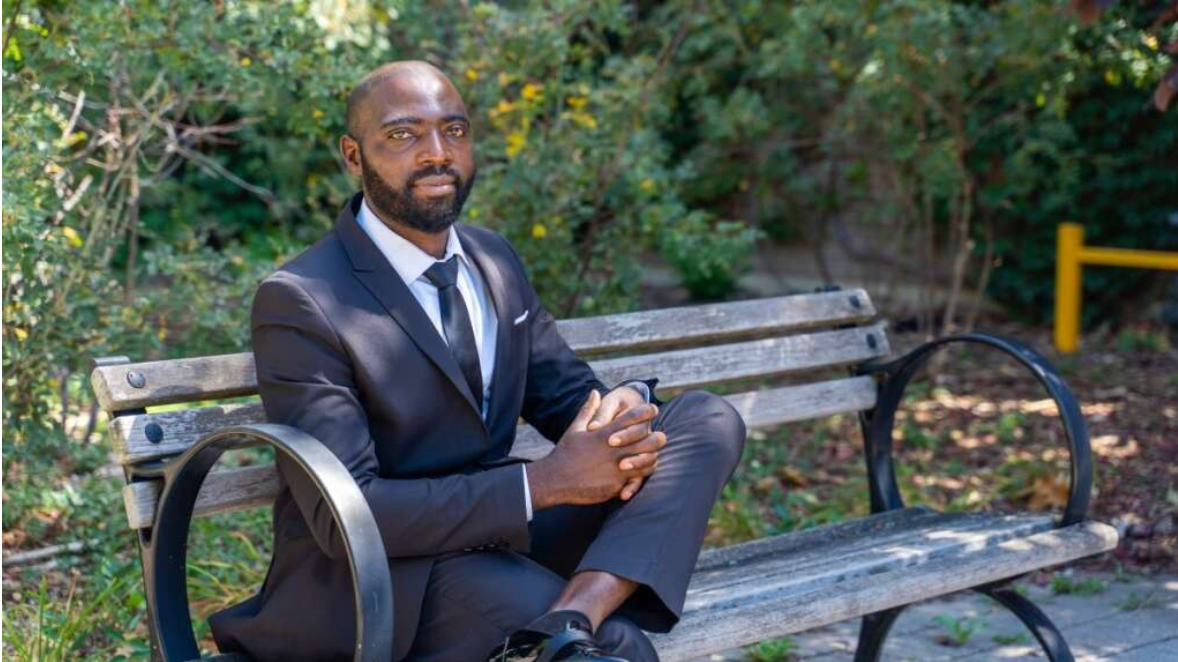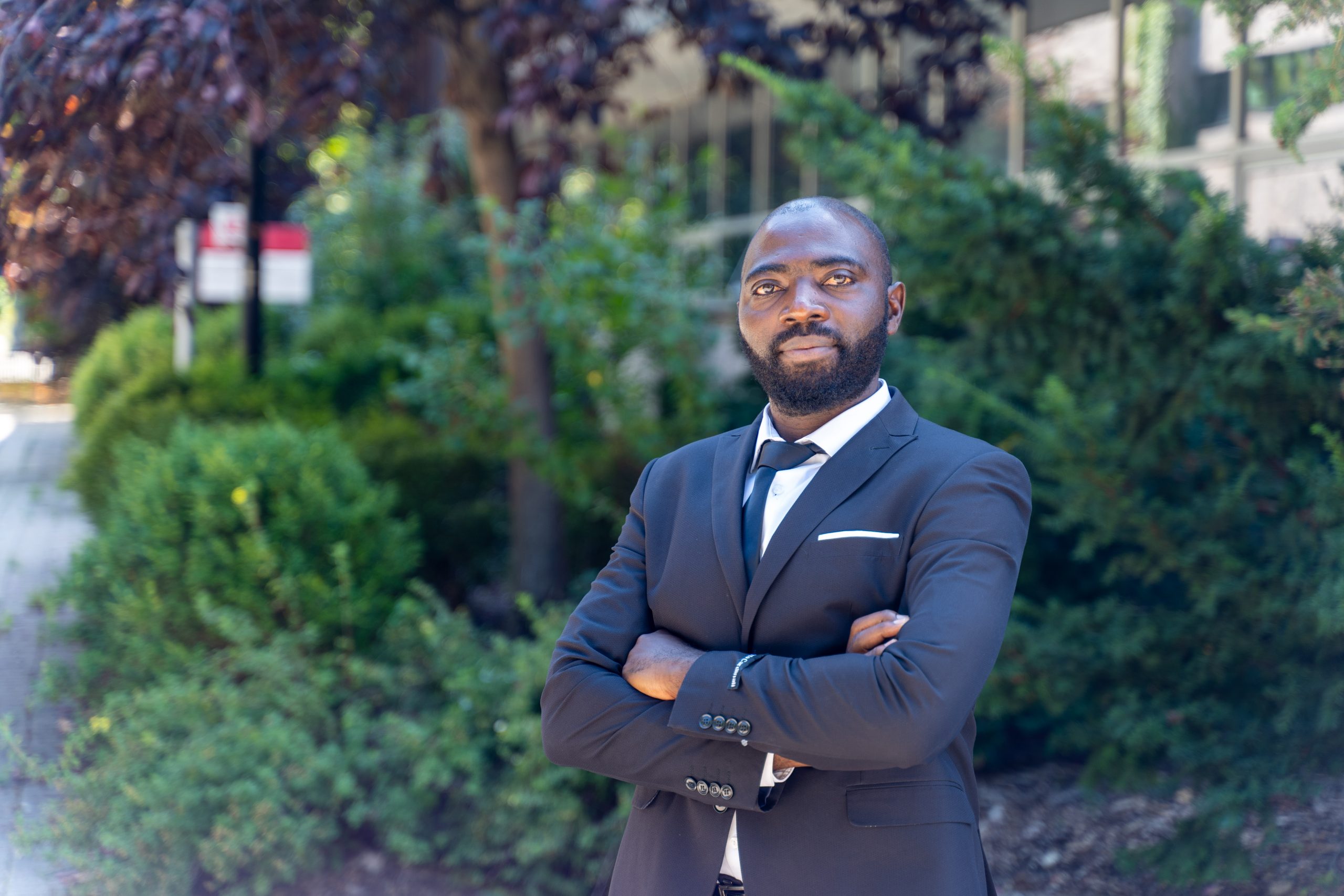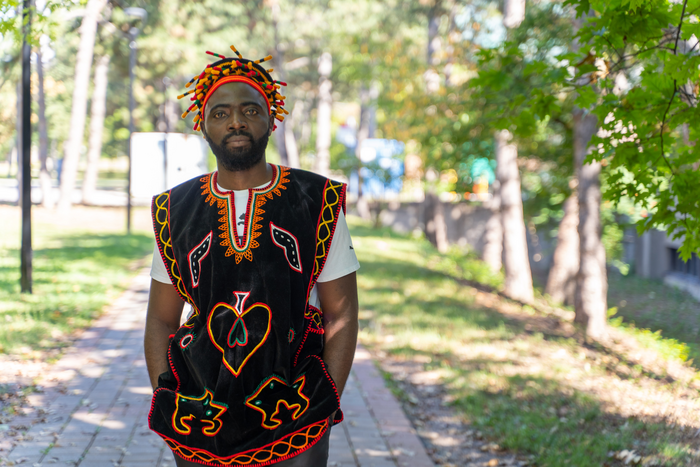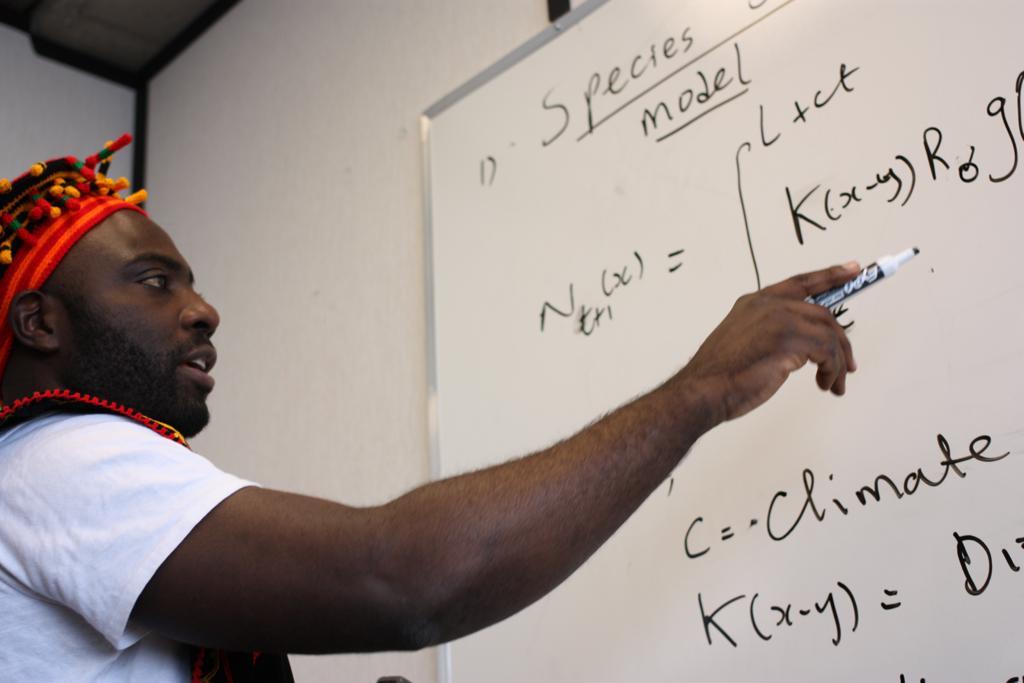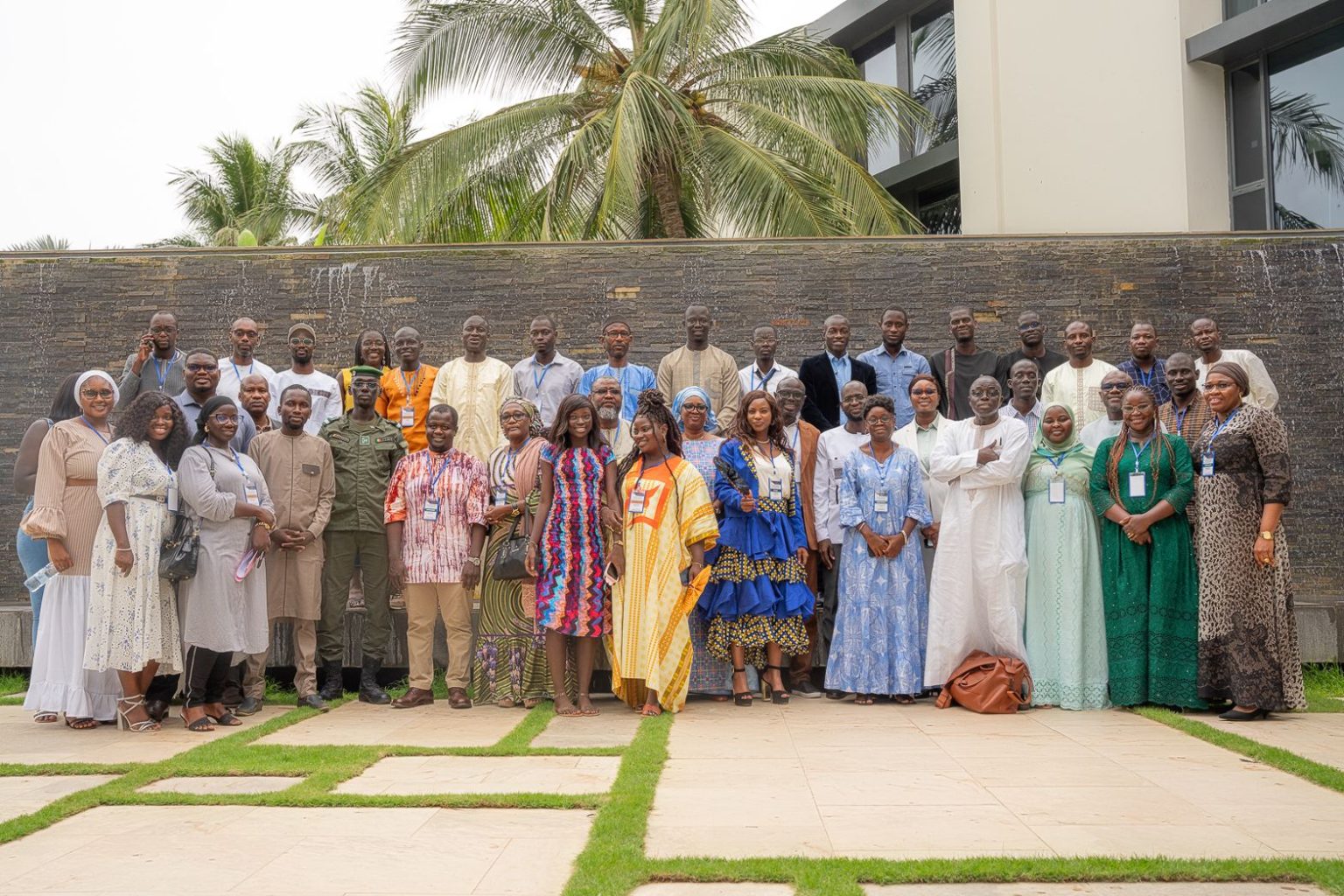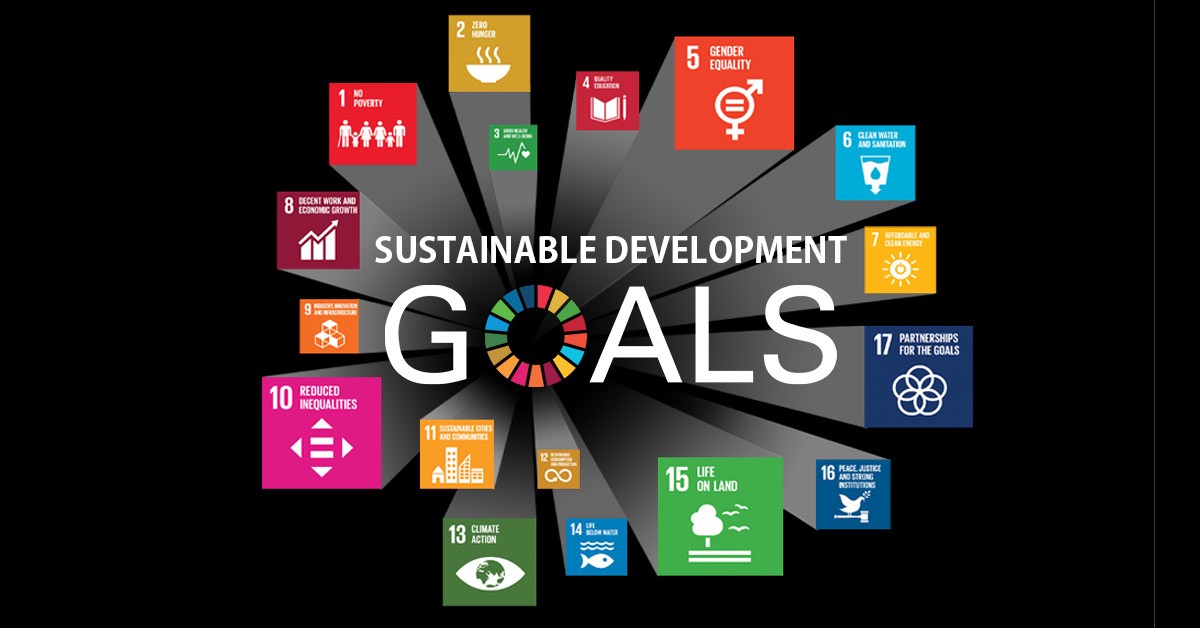WHEN JUDE KONG was growing up in Cameroon, his friends played a major role in encouraging his passion for mathematics.
“From middle school onward, we had a math assignment every day. When I got home, I would relax a bit, then immediately jump to my homework, struggle and ensure that I understood it (at times with the help of my sisters or people in my community) in a way that I could explain to someone. Then I rushed to my friend’s house to work together as a team,” says Kong, an assistant professor in the Faculty of Science’s Department of Mathematics & Statistics.
Whenever he explained the concepts to his friends, there would be a light-bulb moment for them – something finally clicked that they couldn’t understand in class. “Gradually, I gained the nickname ‘Prof’ from my friends in middle school.”
These moments eventually led him to develop what he calls a family-oriented approach to teaching mathematics – especially for students who are Black or from economically disadvantaged communities and were made to believe that someone like them could not do mathematics, he says.
“Despite the indispensability of mathematics, a substantial number of students have ‘mathematics anxiety.’ This makes it difficult for them to participate in math classes, as they have the impression that they know nothing and thus will make a mockery of themselves if they try to ask or answer a question.”

